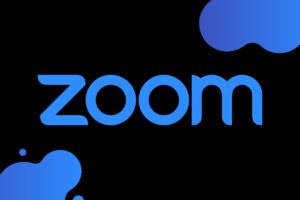During its Inbound customer conference held in Boston today, HubSpot, the marketing and CRM platform based in Boston, unveiled an extensive AI strategy dubbed HubSpot AI. Although HubSpot, like many other enterprise SaaS providers, has been gradually incorporating AI elements over the years, this year, with the emergence of ChatGPT, it is adopting a more comprehensive approach while retaining some of its previous AI features.
Dharmesh Shah, CTO, and co-founder of the company, emphasized that AI, especially generative AI, is poised to revolutionize our interactions with software in a profound manner. “We haven’t witnessed such a significant paradigm shift in software for quite some time,” Shah stated in an earlier interview.He expressed his conviction that generative AI will revolutionize the product development process and enhance customer value creation. HubSpot has been actively aligning itself with this transformative shift.
Andrew Pitre, EVP of Product at HubSpot, explained that the goal of HubSpot AI is to simplify the work of marketers and salespeople. The company has access to a wide array of content to train its AI models, including customer-generated blog posts and other materials stored within HubSpot. Additionally, Pitre noted that the wealth of content and data enables HubSpot AI to comprehend the context of user requests based on existing information.
“We understand how your business operates, and we’re increasingly working on understanding the tone and communication style of your business,” Pitre told TechCrunch.
Furthermore, HubSpot maintains a CRM database containing information about companies, which enhances users’ understanding of their customers, including basic data, purchase history, and customer service interactions.
HubSpot AI is structured around four key components. First, there are content assistants designed to assist users in generating various types of content within the platform, including blog posts, images, marketing campaigns, and websites. The second component comprises AI agents that provide automated support for customers, handling inquiries and routine customer service tasks.
AI Insights, the third component, offers predictive capabilities, such as identifying customers likely to churn or make a purchase, a feature previously integrated into the platform. Finally, ChatSpot, introduced in March and currently in beta, enables marketing and sales professionals to ask questions about HubSpot-stored content in a ChatGPT-like manner and interact with that content using natural language.
Pitre noted that by limiting the data accessible to the models to what is available in HubSpot, they can mitigate the risk of hallucinations, where the model fabricates information when it lacks an accurate answer.
Although it hasn’t posed a substantial problem for us, it’s essential to communicate to our customers that this system is not without its imperfections. You should not view the information you receive as absolute truth but rather as input to help you advance toward your goals,” Pitre emphasized.
The newly announced products are at various stages of availability, with AI Insights already accessible, ChatSpot in public beta, AI agents expected to launch next year, and some AI assistants, like the content assistant, generally available, while the image creation assistant is in beta testing.



